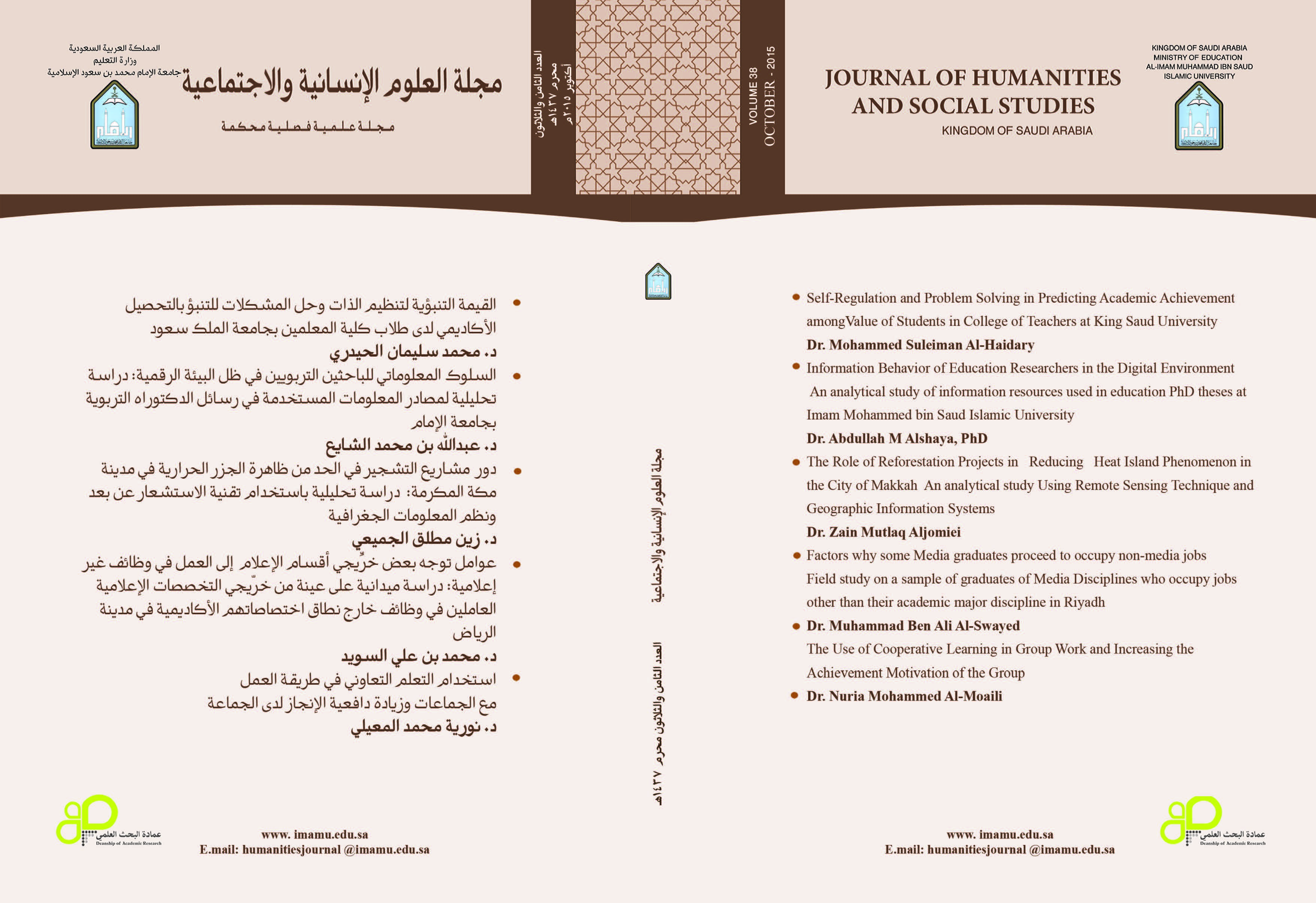Self-Regulation and Problem Solving in Predicting Academic Achievement among Value of Students in College of Teachers at King Saud University
Abstract
The aim of this study is to identify the nature of the relationship between level of academic achievement “GPA" and each of: level of self-regulation and problem solving abilities, in college of teachers and detect whether there are differences between high and low groups of academic achievement in terms of self-regulation as a whole and its dimensions and, problem solving abilities, as, and identify the relative contribution of high and low groups of academic achievement in terms of self-regulation as a whole and its dimensions and, problem solving abilities. The final sample consisted of 200 students of the College of Teachers students of King Saud University for the second semester of the academic year 1433-1434. The descriptiverelational comparative method was used.The results of the study indicate a statistically significant correlation between academic achievement and each of: level of self-regulation and problem solving abilities. The study also showed the existence of statistically significant differences between high and low groups of academic achievement in terms of self-regulation as a whole and in problem solving abilities, in favor of the high academic achievement group. The study also found that those with a higher level of self-regulation had a higher level of academic achievement and stronger problem solving abilities than those of the average and lower levels of self-regulation groups. The study indicated also that the contribution of self-regulation to the prediction of academic achievement was (46%), and that the contribution of problem solving was (2%), for a combined contribution of (48%) which is considered a good amount.




